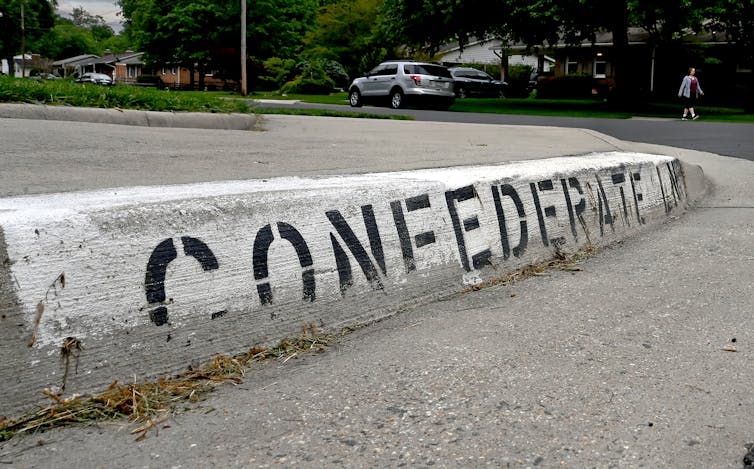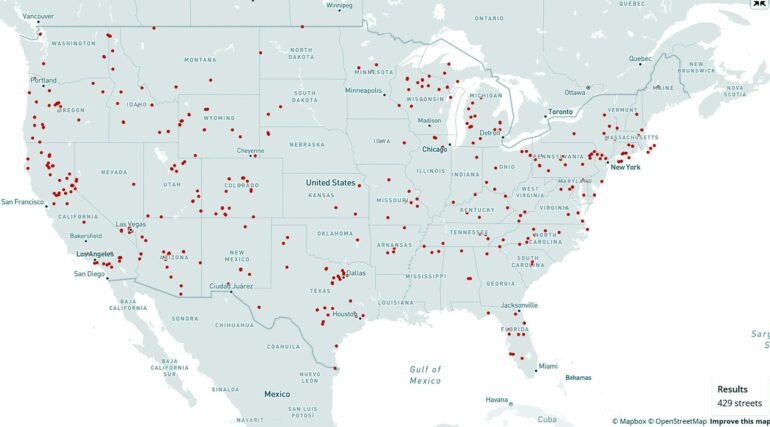The racially motivated tragedy in Charleston, South Carolina, in 2015, when a white supremacist murdered nine Black worshippers, and the deadly white nationalist rally in Charlottesville, Virginia, two years later compelled Americans to confront the role played by memorials, monuments and other symbols in glorifying racist ideologies.
George Floyd’s murder at the hands of a white Minneapolis police officer in 2020 only lent urgency to that challenge.
Part of the racial reckoning in the wake of Floyd’s death is a movement to remove offensive names from public places. Some names perpetuate demeaning slurs and stereotypes against people of color. Others honor historical figures linked to racism and colonization. This movement is what we geographers call America’s “renaming moment.”
Government officials, activists and other people have called for a renaming of certain places and institutions. Examples include removing Christopher Columbus’ name from a Chicago public school and erasing the name of former KKK leader and governor Bibb Graves from a University of Alabama building. The elimination of names of Confederate generals from several U.S. military bases provides another example.
These changes have become flash points of community activism and debate, both in support of and in resistance to name revisions.
A widespread element in this renaming moment are offensive street names. We believe discussions and decisions about removing these names may benefit from comprehensive sources of information that allow the public to know how pervasive a problem the country might be confronting.
The recent release of an app developed by STNAMES LAB, an international team of scholars of place names, allows users to conduct nationwide inventories of discriminatory roadway names, revealing how often and where they are found.
We believe the app is an important educational tool. It will help communities understand how discriminatory beliefs are woven into everyday spaces and the harm caused by offensive names.
After tracking a few of America’s most contested place and institution names, we believe the app will help people see the changes necessary to recognize and repair past wrongs in street naming.

Confederate Lane tops the list of the most unpopular street names in the Mosby Woods neighborhood in Fairfax, Va.
Photo by Michael S. Williamson/The Washington Post via Getty Images
Recognizing that names can harm and heal
There is growing public recognition that place names are not neutral identifiers of locations. Rather, place names can transmit harmful messages that misrepresent the history and identity of minority communities. As a result, they work against the possibility of a more equal society.
One highly publicized effort at identifying and replacing offensive place names happened in November 2021.
U.S. Interior Secretary Deb Haaland, the first Native American to hold that post,



